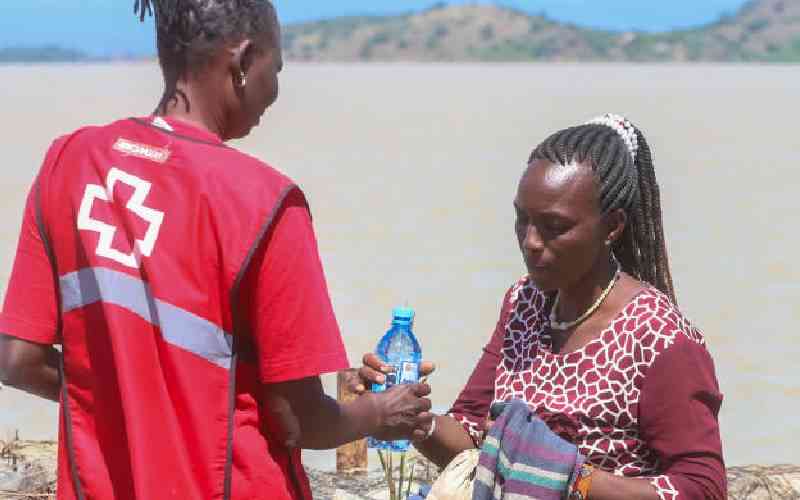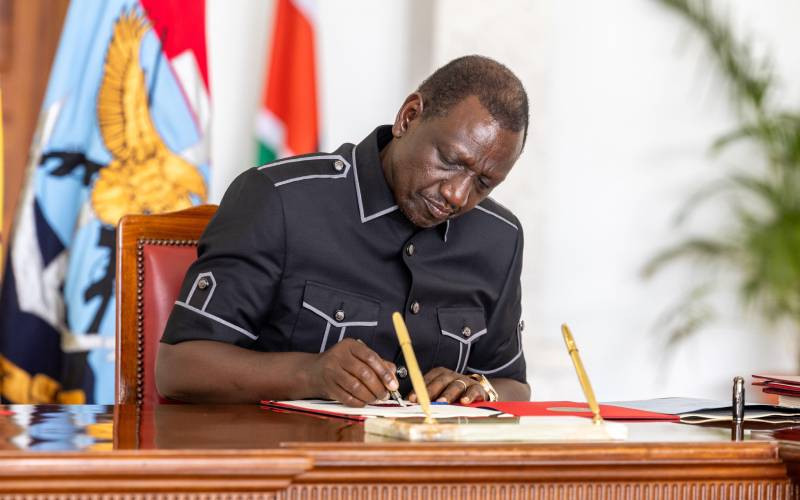By Leonard Korir
Kenya,TransMara: Dilapidated roads and lack of vehicles have been blamed for crippling security operations in Trans Mara District. Despite the challenges, some Provincial Administration officers say they are making progress in the war against cattle rustling.
Trans Mara West DC Abdihakim Jubat said security agents have managed to kill top bandits commanders in the area. He said there are plans for a cross-border strategy involving security officers from Tanzania to stem the menace.
“We are working with Tanzania to set up a joint border security commission to oversee security between the two countries,” Mr Jubat says. A police constable admitted that fighting cattle rustling in the volatile border area is a big challenge.
Locals claim corruption among security officers and local administrators has also affected the war against cattle rustling. They accused some area chiefs of aiding cartels in the illegal trade by doctoring information relayed to the Government.
“There are chiefs who are under the payroll of some of these unscrupulous cattle traders,” said a border peace committee member, who sought anonymity. “Whenever raids are carried out in their areas of jurisdiction, they either fail to report to their bosses or give the wrong information.”
The official hopes devolution will end the menace, as county governments will have a better picture of what is going on.
A local chief blamed lack of proper information on the raids on challenges they face in their work, and denied claims they are compromised by bandits. He said security personnel are given risk allowance while chiefs are left out yet they are exposed to the same volatile environment.
“It beats logic that some of us who are supposed to report, investigate and even pursue any stolen animal have no allowance attached to our salary,” says the chief, sought anonymity for fear of victimisation. “In fact, the Government should consider giving us firearms if we are to be more effective in our work. How do you expect me to follow bandits with a stick?”
The chief complained that they have constantly become targets of the bandits, who perceive them as a hindrance to the illegal trade.
“The masters of this illegal business have on several occasions warned us of dire consequences if we report them to the Government,” says the chief. Insiders familiar with the trade say most of the stolen animals are taken to Nairobi, where they are sold to different abattoirs.
Animals even end up at different markets in Tanzania and in the Middle East. Several tanneries in Nairobi also benefit from the stolen stock by turning their hides into shoes, handbags and other leather products.
Meat-packaging companies ship the cattle either alive or as canned beef to Somalia and the Persian Gulf. Animals that are weak and unhealthy are sold to local abattoirs at throwaway prices.
Animosity among local communities has made cattle rustling to thrive. None risks crossing over into “enemy territory” in pursuit of stolen animals. There have been claims that many killings during cattle raids are intended to keep this animosity alive and protect the trade.
Sell meat
Stay informed. Subscribe to our newsletter
Mr James Chacha, a campaigner against cattle rustling from Mashangwa in Trans Mara, said traders keen on making quick profit sell meat from stolen animals at discounted rates. A spot-check in several butcheries shows that the prices of meat in areas such as Ntimaru, Kegonga, Tarime and Jerusalem along the Angatta Barrikoi-Tanzania border rise and fall depending on the source of the slaughtered animals.
“There are places where you can buy a kilogram of meat for Sh200, almost half the normal price,” says Mr Chacha.
Tarime DC John Henjewele, said guns from refugee camps along the Tanzania-Rwanda-Burundi borders make their way into Trans Mara and have been blamed for fuelling the crime. The weapons are easily obtained from refugees and rebels in exchange of foodstuffs.
Mr Henjewele said the Tanzanian government recently tried to forcefully deport refugees from camps after they discovered that they were safe haven for the illegal firearms, but the United Nations High Commission for Refugees resisted the move.
The administrator said rebels in parts of Tanzania were the major suppliers of guns and ammunition in the region. He said the cattle rustlers also supply the guns from the warlords.
“Some of the rebels train those purchasing the guns on how to use them,” said Henjewele.
The presence of the Kuria community in Kenya and Tanzania has complicated efforts to end cattle raids. Henjewele said gangs from one clan in Kenya plot with fellow criminals in Tanzania.
 The Standard Group Plc is a
multi-media organization with investments in media platforms spanning newspaper
print operations, television, radio broadcasting, digital and online services. The
Standard Group is recognized as a leading multi-media house in Kenya with a key
influence in matters of national and international interest.
The Standard Group Plc is a
multi-media organization with investments in media platforms spanning newspaper
print operations, television, radio broadcasting, digital and online services. The
Standard Group is recognized as a leading multi-media house in Kenya with a key
influence in matters of national and international interest.
 The Standard Group Plc is a
multi-media organization with investments in media platforms spanning newspaper
print operations, television, radio broadcasting, digital and online services. The
Standard Group is recognized as a leading multi-media house in Kenya with a key
influence in matters of national and international interest.
The Standard Group Plc is a
multi-media organization with investments in media platforms spanning newspaper
print operations, television, radio broadcasting, digital and online services. The
Standard Group is recognized as a leading multi-media house in Kenya with a key
influence in matters of national and international interest.








